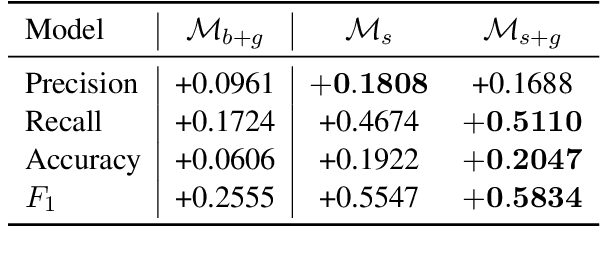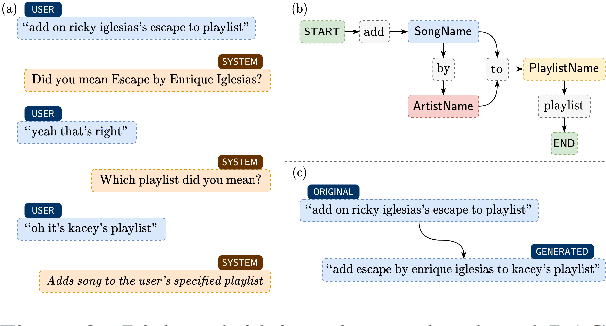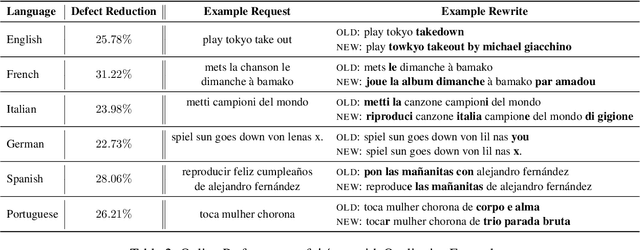Self-Aware Feedback-Based Self-Learning in Large-Scale Conversational AI
Paper and Code
Apr 29, 2022



Self-learning paradigms in large-scale conversational AI agents tend to leverage user feedback in bridging between what they say and what they mean. However, such learning, particularly in Markov-based query rewriting systems have far from addressed the impact of these models on future training where successive feedback is inevitably contingent on the rewrite itself, especially in a continually updating environment. In this paper, we explore the consequences of this inherent lack of self-awareness towards impairing the model performance, ultimately resulting in both Type I and II errors over time. To that end, we propose augmenting the Markov Graph construction with a superposition-based adjacency matrix. Here, our method leverages an induced stochasticity to reactively learn a locally-adaptive decision boundary based on the performance of the individual rewrites in a bi-variate beta setting. We also surface a data augmentation strategy that leverages template-based generation in abridging complex conversation hierarchies of dialogs so as to simplify the learning process. All in all, we demonstrate that our self-aware model improves the overall PR-AUC by 27.45%, achieves a relative defect reduction of up to 31.22%, and is able to adapt quicker to changes in global preferences across a large number of customers.
 Add to Chrome
Add to Chrome Add to Firefox
Add to Firefox Add to Edge
Add to Edge